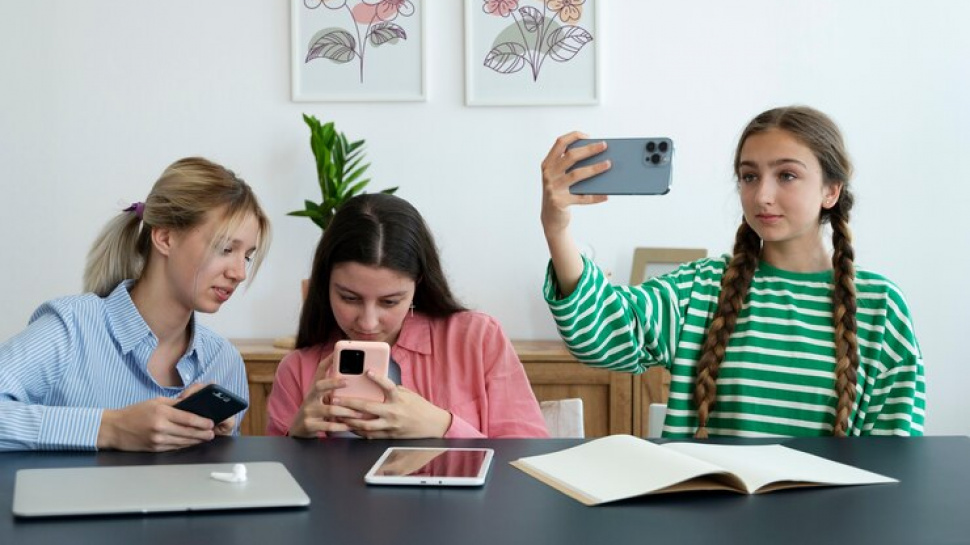Positive Effects of Social Media on Student Learning
1. Access to Educational Resources
Social media platforms provide students with an abundance of learning resources, including video tutorials, study groups, and academic discussions. Websites like YouTube and LinkedIn Learning allow students to grasp complex concepts through engaging visual content. Moreover, Facebook and Reddit communities create spaces for students to exchange knowledge, ask questions, and receive support from peers and educators.
2. Enhanced Collaboration and Communication
Social media facilitates collaboration among students, even beyond physical classrooms. Platforms such as WhatsApp and Discord allow students to form study groups, share notes, and clarify doubts in real time. This digital interaction helps students stay engaged and improves their learning efficiency.
3. Development of Digital Literacy Skills
As students navigate different social media platforms, they develop digital literacy skills that are essential in today’s technology-driven world. They learn how to differentiate credible sources from misinformation, evaluate online content, and effectively communicate in a digital environment. These skills are invaluable for academic success and future careers.
4. Motivation and Inspiration
Many students find motivation through social media. Following educational influencers, motivational speakers, and successful professionals helps students stay inspired and focused on their academic and career goals. Social media can serve as a source of encouragement, helping students push their limits and strive for excellence.
Negative Effects of Social Media on Student Learning
1. Distraction and Reduced Focus
One of the biggest drawbacks of social media is that it often distracts students from their studies. The constant notifications, scrolling through feeds, and engaging in online conversations can reduce concentration levels and lead to procrastination. Many students struggle to balance academic responsibilities with their social media usage, leading to lower productivity.
2. Increased Dependence on Online Assistance
With the rise of social media, students often look for shortcuts to complete their academic tasks. Instead of putting in the effort to study, some opt for external assistance. Many students even consider services like Pay someone to take my online class, which can undermine their learning experience. While online assistance can be helpful in certain cases, over-reliance on such services can hinder a student’s ability to develop problem-solving and critical-thinking skills.
3. Misinformation and Fake News
Not all information available on social media is accurate or reliable. Students are exposed to a vast amount of unverified content, which can lead to misunderstandings and misconceptions. This misinformation can negatively impact their academic performance and decision-making. It is essential for students to fact-check sources and rely on credible educational platforms.
4. Mental Health Concerns
Excessive use of social media has been linked to anxiety, depression, and low self-esteem among students. Constant comparison with others, cyberbullying, and the pressure to maintain a certain online image can take a toll on mental health. Studies suggest that excessive screen time can also disrupt sleep patterns, leading to fatigue and poor academic performance.
How to Use Social Media Effectively for Learning
1. Set Time Limits on Social Media Usage
To prevent distractions, students should set specific time limits for using social media. Apps like Forest and StayFocusd can help manage screen time and maintain productivity.
2. Follow Educational Pages and Group
Instead of spending hours on entertainment content, students can follow pages and groups that offer academic insights, career advice, and skill development opportunities. Platforms like LinkedIn, Coursera, and Khan Academy are great sources for educational content.
3. Participate in Online Discussions and Webinar
Engaging in meaningful discussions and attending online webinars can enrich a student’s knowledge and enhance critical thinking skills. Many institutions and educators host free sessions on platforms like Zoom and YouTube.
4. Use Social Media to Find Reliable Academic Help
Students should use social media wisely to seek academic support. Instead of shortcuts, they can look for interactive learning platforms that offer legitimate assistance, such as Online Exam Help, for guidance in preparing for assessments and improving their understanding of subjects.
Final Thoughts
Social media is a powerful tool that can significantly impact student learning and behavior. While it provides access to vast educational resources and enhances collaboration, it also poses challenges like distraction, misinformation, and mental health issues. By using social media mindfully and implementing time management strategies, students can harness its benefits while minimizing the negative effects.
The key is to maintain a balance between social media and academics, ensuring that digital engagement contributes positively to learning and personal growth



Share the News